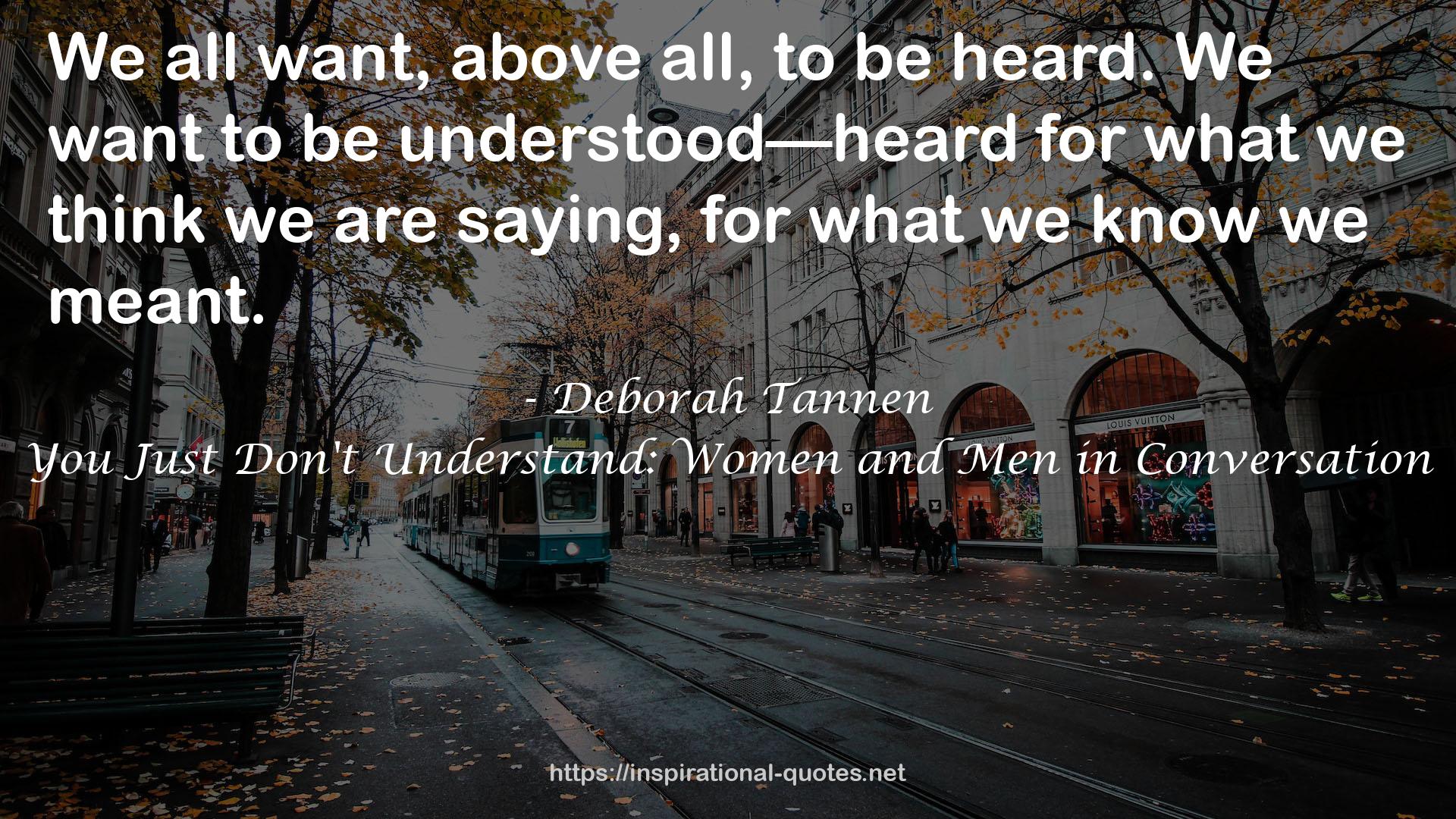7
" But the manner of giving voice to thoughts and feelings becomes particularly significant in the case of negative feelings or doubts about a relationship. The difference was highlighted for me when a fifty-year-old divorced man told me about his experiences in forming new relationships with women. On this matter, he was clear: "I do not value my fleeting thoughts, and I do not value the fleeting thoughts of others." He felt that the relationship he was currently in had been endangered, even permanently weakened, by the woman's practice of tossing out her passing thoughts, because, early in their courtship, many of her thoughts were fears about the relationship. Not surprisingly, since they did not yet know each other well, she worried about whether she could trust him, whether their relationship would destroy her independence, whether this relationship was really right for her. He felt she should have kept these fears and doubts to herself and waited to see how things turned out.
As it happens, things turned out well. The woman decided that the relationship was right for her, she could trust him, and she did not have to give up her independence. But he felt, at the time that he told me of this, that he had still not recovered from the wear and tear of coping with her earlier doubts. As he put it, he was still dizzy from having been bounced around like a yo-yo tied to the string of her stream of consciousness.
In contrast, the man admitted, he himself goes to the other extreme: he never expresses his fears or misgivings about their relationship at all. If he's unhappy but doesn't say anything about it, his unhappiness expresses itself in a kind of distancing coldness. This response is just what women fear most, and just the reason they prefer to express dissatisfactions and doubts - as an antidote to the isolation and distance that would result from keeping them to themselves.
The different perspectives on expressing or concealing dissatisfactions and doubts may reflect a difference in men's and women's awareness of the power of their words to affect others. In repeatedly telling him what she feared about their relationship, she spoke as though she assumed he was invulnerable and could not be hurt by what she said; perhaps she was underestimating the power of her words to affect him. For his part, when he refrains from expressing negative thoughts or feelings, he seems to be overestimating the power of his words to hurt her, when, ironically, she is more likely to be hurt by his silence than his words.
Such impasses will perhaps never be settled to the complete satisfaction of both parties, but understanding the differing views can help detoxify the situation, and both can make adjustments. "
― Deborah Tannen , You Just Don't Understand: Women and Men in Conversation
16
" Philip Blumstein and Pepper Schwartz, in their study American Couples, found that lesbians have sex less often than gay men and heterosexual couples. The sociologists believe that this happens because, as they found, in heterosexual couples the man almost always initiates sex, and the woman either complies or exercises veto power. Among gay men, at least one partner takes the role of initiator. But among lesbians, they found, often neither feels comfortable taking the role of initiator, because neither wants to be perceived as making demands. "
― Deborah Tannen , You Just Don't Understand: Women and Men in Conversation

